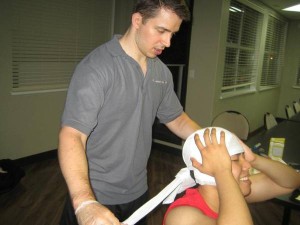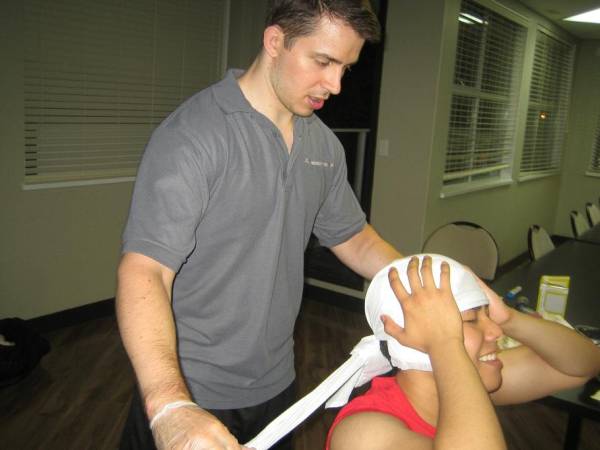A concussion is a common form of head injury that can occur in both children and adults. If a child sustained a concussion, he/she is required to rest to allow the brain to recover. There should be a gradual return to school, sports or other forms of physical activities.
Overview on a concussion
A concussion is a form of head injury that occurs once the head is bumped which causes a brief change in how the brain functions.
The usual causes of concussion among young children include falls. Among older children, most concussions occur while playing sports such as soccer, football, rugby and horse riding. The injury can also occur during leisure or hobbies such as falling from bicycles or skateboards.

What are the indications?
The physical symptoms include the following:
- Headache
- Blurry or double vision
- Nausea and/or vomiting
- Drowsiness, sleeping difficulties and fatigue
- Dizziness and balance issues
- Seizures
- Loss of consciousness
Cognitive symptoms include:
- Difficulty remembering things or forgetting altogether
- Difficulty concentrating
- Feeling “slow” or “in a fog”
Emotional and behavioral symptoms include:
- Feeling anxious
- Irritable
- Sad or depressed
In most children, the symptoms settle within 2 weeks. A small percentage of cases have symptoms that last for 2 weeks or more after the injury. It is uncommon or even rare for the symptoms to last for more than a month after a concussion
What should I do if a child is suspected with the injury?
If you suspect that a child sustained a concussion, he/she should stop playing. The child should be assessed by a doctor as soon as possible.
In case the child has severe symptoms such as seizures, call for emergency assistance right away.
Resuming any physical activity on the same day can put the child at high risk for being injured further or develop serious head injuries. The reason for this is that the child has a slower reaction time, slower thinking and poor balance.
Management
The ideal treatment of choice for a concussion is getting enough rest both physically and mentally until the acute symptoms settled.
When it comes to mental rest, it involves limiting activities that require concentration and attention. Try to keep the thinking and brain activity of the child low so that the symptoms are not triggered.
Once symptoms are present, you have to stay with the child. This will ensure that he/she will not do anything that increases the symptoms and slow down recovery. In case the symptoms do not seem to settle within 2 weeks, a doctor should be consulted for further assessment.
Quick Note / Disclaimer
The material posted on this page on concussions is for learning and educational purposes only. To learn to recognize and manage head and spine injuries including concussions, register for a first aid and CPR course with Toronto First Aid.

